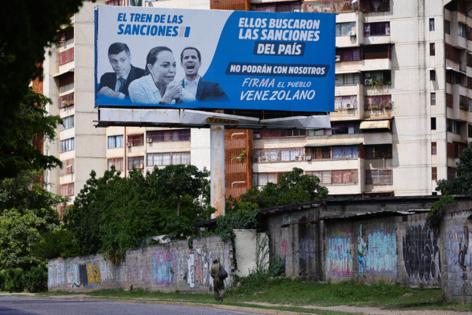Commentary: The challenges of presidential Nobel Peace Prize acceptance speeches
Published in Op Eds
Having brokered what appears to be a groundbreaking ceasefire leading to a longer-term Middle East peace settlement, supporters of President Donald Trump, and the president himself, are lobbying the Nobel committee to bestow a 2026 Nobel Peace Prize on Trump. Whether next year’s committee honors him may depend less on the durability of the Middle East deal or any other peace treaty the president helps facilitate between now and next October than on the committee’s perceptions about his pulling vital humanitarian aid for the needy and threatening American citizens.
The committee may also worry about any awardee known for bashing rhetorical norms and, unlike previous Nobel laureates in their acceptance speeches, undermining the solemnity of the occasion and debasing those consumed by the very conflicts the winners helped resolve.
U.S. presidential Nobel laureates shaped their remarks to suit the rhetorical situation, thereby gaining and expressing deeper insights into the intricate relationship between war and peace. Their acceptance speeches responded to the somber nature of the occasion by being celebratory and respectful, often honoring the ideals of peace, justice and human dignity.
Yet, their speeches frequently revealed a sobering contradiction at the heart of the peace-building endeavor: The pursuit of peace does not always succeed in preventing conflict and, paradoxically, can sometimes involve conflict itself. Presidents have often used their rhetorical platforms not only to celebrate progress but also to reflect on the painful realities that persist — wars still raging, injustices still unaddressed and peace still elusive.
We cite two recent winners as rhetorical exemplars. President Jimmy Carter was honored in 2002 for his extensive humanitarian and diplomatic efforts following his presidency. His presidency was marred by international conflicts that he could not avert or end. Nevertheless, Carter was able to draw lessons about the tensions between war and peace from his attempts to mitigate those conflicts. War, he explained, “may sometimes be a necessary evil” but “never a good. We will not learn how to live together in peace by killing each other’s children.” Future wars might erupt, Carter admitted, but there was a way forward: “We can choose to work together for peace. We can make these changes — and we must.”
President Barack Obama, who was awarded in 2009 ostensibly for his aspirations and initial endeavors to strengthen international diplomacy and cooperation, sounded apologetic in his acceptance remarks. He appeared to indicate that his achievements barely met the standards of the occasion. Still, the president acknowledged his struggle with inherited conflicts in Afghanistan and Iraq. “I come here with an acute sense of the costs of armed conflict,” he said, “filled with difficult questions about the relationship between war and peace, and our effort to replace one with the other.”
Probably referring to his administration’s efforts to bring Osama bin Laden to justice, even if that meant killing him, Obama defended the idea that force is sometimes morally legitimate: “We must begin by acknowledging the hard truth: We will not eradicate violent conflict in our lifetimes. There will be times when nations — acting individually or in concert — will find the use of force not only necessary but morally justified.”
Like Carter, whose pursuits of peace and human rights Obama praised, he cast a hopeful vision for the future, insisting a “just and lasting peace” was achievable through cooperation, human rights and diplomacy.
These compelling speeches honestly acknowledged the tension between conflicts and efforts to end them, suggesting that true peace is not the absence of struggle but the courage to confront it. In this way, these presidents’ Nobel Peace Prize addresses became more than ceremonial remarks — they served as urgent calls to action and moral reckonings with the world’s unfinished work.
Despite the constraints and controversies surrounding their presidencies, these leaders nonetheless established high standards for the moral and rhetorical conduct expected of Nobel Peace Prize laureates in their acceptance speeches. While rhetorical decorum may not be a priority for all audiences, it is likely of considerable importance to the Nobel Committee. The committee appears to view the acceptance speech not merely as a formality but as a solemn occasion requiring dignity, humility and thoughtful reflection.
For future recipients — including figures such as Trump or any other U.S. president — a central rhetorical challenge will be to honor the gravity of the moment. This entails accepting the prize with grace while offering a profound and nuanced exploration of the enduring tensions between the imperatives of war-making and the pursuit of peace in our conflict-ridden era.
Above all, the committee would expect winners to articulate a unifying vision that speaks to both present and future generations — reminding us that the power of our shared humanity far outweighs the fears and prejudices that divide us.
_____
Kenneth Zagacki is a communication professor at North Carolina State University. Richard Cherwitz is an emeritus Ernest A. Sharpe Centennial professor at the University of Texas at Austin’s Moody College of Communication and founding director of the university’s Intellectual Entrepreneurship Consortium and was a doctoral adviser of Zagacki.
_____
©2025 Chicago Tribune. Visit at chicagotribune.com. Distributed by Tribune Content Agency, LLC.
























































Comments